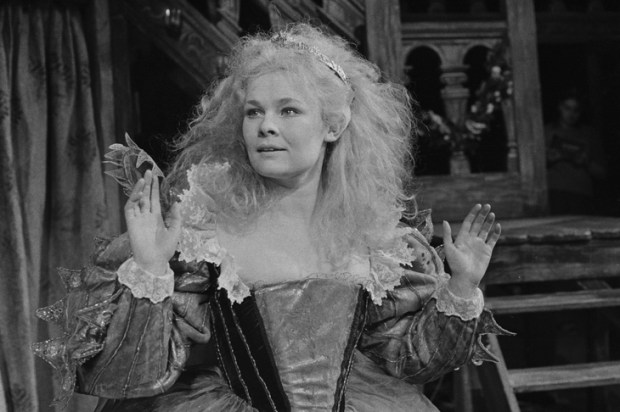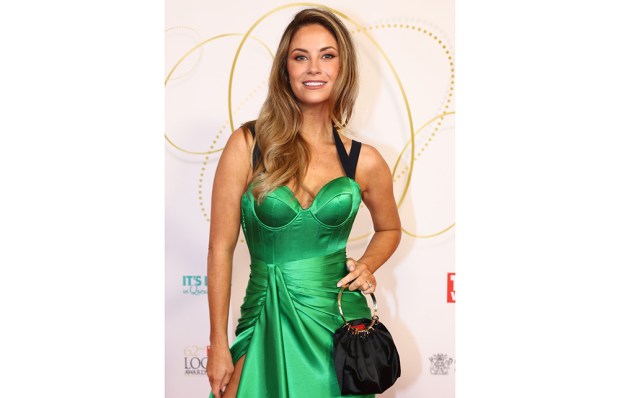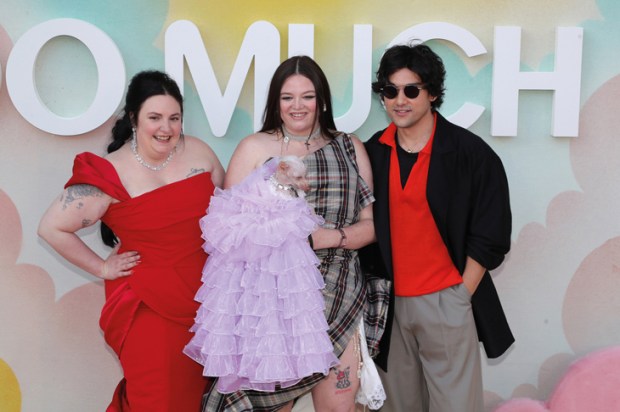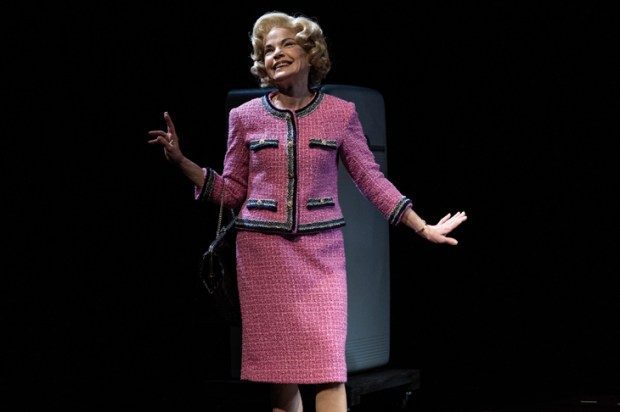It was at Cape Liptrap that the call came through. The setting was almost absurdly beautiful, the sea one way and alpacas (of all things) the other. And then there was the voice. Everyone in the world knew this voice; it was the voice of Darth Vader, it was the voice of the Lion King, for some fraction of spoken word devotees it was the voice of God. Yes, you’ve got it, this was the voice of James Earl Jones.
The God joke is an old one: you can get a complete recording of the New Testament read by Gregory Peck or you can get one by James Earl Jones: Atticus Finch or Darth Vader, take your pick. Well, for some of us there was no choice. We went for James Earl Jones (the greatest voice of grandeur since Orson Welles) who died last week at the age of 93.
George Lucas said it was a choice of Orson Welles or James Earl Jones and he very wisely went for the latter. Some of us wish we had seen his Othello (which he did to Christopher Plummer’s Iago) more than any other Shakespearean performance though he was gently mocking when I asked him about Plummer, ‘Well, you know, Chris did what Chris does.’
But James Earl Jones had that voice, deeper than any ordinary man’s, that makes you wonder if Shakespeare had someone like him as his model for this extraordinary figure with his bass-baritone music ‘Keep up your bright swords for the dew will rust them.’
James Earl Jones says in his short luminous monograph about Othello – in Faber’s ‘Actors on Shakespeare’ series of 2003 – that ‘[director] Margaret Webster made the Paul Robeson-Uta Hagen-José Ferrer performances the most realised production of Othello of modern times, and I believe Paul Robeson’s Othello is the landmark performance of the twentieth century.’ Of Olivier’s filmed stage production James Earl Jones said, ‘I have never seen a more profound derailment of a potentially wonderful production.’
James Earl Jones didn’t ever record his Othello, audibly or visually, which is a great pity though he did a very regal and leonine Lear with Raul Julia as Edmund and Paul Sorvino as Gloster. He told me that Lear is the most offending soul alive and that he is the guiltiest person on stage. He was in Australia to do Driving Miss Daisy with Angela Lansbury and to talk to him was to feel a warmth which was like the absolute opposite of that Prince of Darkness Darth Vader.
He had originally done the very touching two-hander with Vanessa Redgrave and they went on to do an old-timer’s version of Much Ado About Nothing.
Much Ado is to be done by the Melbourne Theatre Company in their 2025 season. It’s hard to disagree with Anne Louise Sarks that we don’t honour our own canon. So it’s gratifying that David Williamson’s The Removalists with its dazzling naturalism and its bracing violence should be a forthcoming highlight. Its announcement coincides with the death of Jack Hibberd who showed different ways of conjuring the theatre’s magic lantern and its dark shadows as did John Romeril.
We could do worse than have a festival devoted to the renaissance of Australian theatre. Max Gillies attributes it to the massive increase in tertiary education from the early 1960s. Students read absurdist plays like Albee’s The Zoo Story, they did productions of Ionesco’s The Chairs directed by Patrick McCaughey with a design by the late great Peter Corrigan which ‘was like the inside of cadaver, the inside of a stomach’.
When you glance through the MTC’s proposed season – much of which is radically unlike this – you suddenly hit on a production of Daphne Du Maurier’s Rebecca of all things. Now Rebecca – with Joan Fontaine as the nameless heroine, Laurence Olivier as Max de Winter and Dame Judith Anderson in a staggering performance as the housekeeper Mrs Danvers – was famously filmed by Hitchcock but was not only a bestselling novel but a hit stage show with Celia Johnson (of Brief Encounter) before it was a film. And, yes, it’s not hard to imagine Nikki Shiels giving her glittering stamp to the heroine or thinking Pamela Rabe might be well cast as the sinister Sapphic housekeeper but why would you cast Bert Labonte in the Olivier role?
If you wanted to race bend, Zahra Newman could do Danvers but surely a dashing actor, in any case, like Kenneth Ransom would be a more natural choice for Max de Winter if you didn’t want to go for an obvious choice like Toby Schmitz.
Another literary translation involves Judy Davis in a stage version of Helen Garner’s The Spare Room.
Judy Davis almost played the Garner role in Gillian Armstrong’s film of The Last Days of Chez Nous and she is likely to be a riveting presence in Eamon Flack’s Belvoir production of The Spare Room which is about a woman who becomes the carer of an old friend who is dying of cancer and hurling herself at possible alternative treatments.
It’s a novel that takes to a dramatic extremity the portrayal of that unreliable, often none too sympathetic figure who stalks Garner’s fiction and non-fiction alike. In the Belvoir stage version Judy Davis – who last appeared on stage in a 2011 version of Chekhov’s The Seagull as Arkadina – will be partnered by that formidable actress Liz Alexander and it’s not hard to imagine the stage version will play on the audience’s sympathies somewhat differently to the book and with a more dynamic and moody clash of sympathies.
Next year’s Sydney Theatre Company programme has its fair share of literary adaptations with one of Picnic at Hanging Rock – the most archetypal work of the Australian film renaissance – different from but complementary to the stage revival – with Olivia DeJonge (Priscilla in the Baz Luhrmann film Elvis) and with Sarah Goodes and Joanna Murray-Smith actually doing a new version of The Talented Mr. Ripley. Joanna Murray-Smith’s Switzerland may be the most original variant on the Patricia Highmsith theme. And then there’s Kate Mulvany adapting The Shiralee by D’Arcy Niland. This will be Mulvaney’s third stage adaptation of an Australian novel which began with Ruth Park’s The Harp in the South and Playing Beatie Bow. D’Arcy Niland was Ruth Park’s husband and there is a 1950s film version of The Shiralee with Peter Finch.
Got something to add? Join the discussion and comment below.
You might disagree with half of it, but you’ll enjoy reading all of it. Try your first month for free, then just $2 a week for the remainder of your first year.













